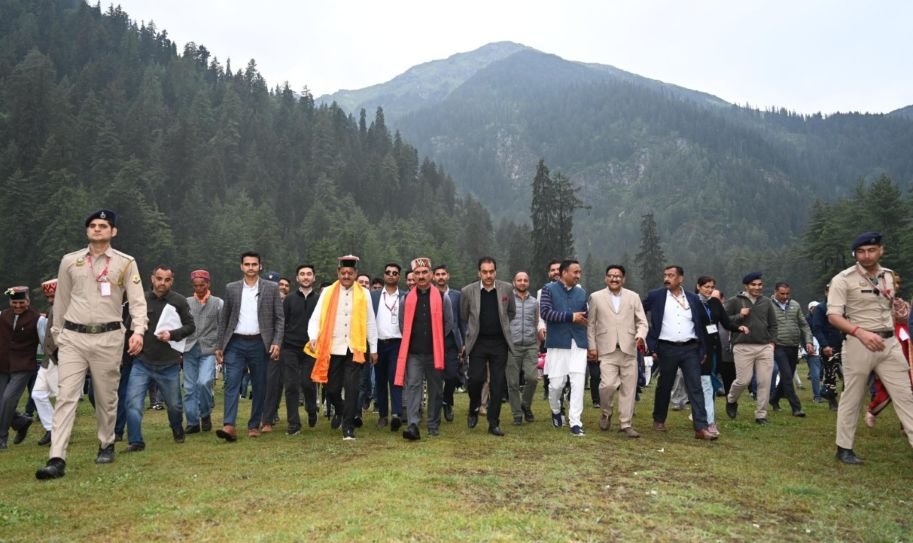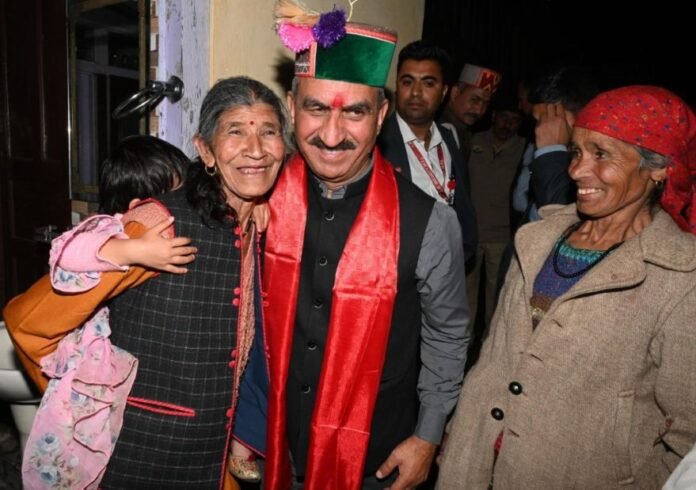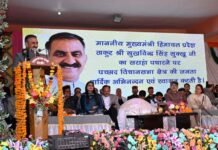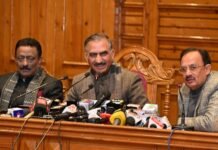In a significant effort to strengthen governance at the grassroots level, Himachal Pradesh Chief Minister Thakur Sukhvinder Singh Sukhu took the state’s flagship outreach programme ‘Sarkar Gaon Ke Dwar’ to Baga Sarahan, a remote village in the Anni region, underscoring his government’s commitment to inclusive development and rural empowerment. The Chief Minister’s direct engagement with citizens in such inaccessible parts of the state marks a sharp shift toward participatory governance, where the voice of the remotest citizen is heard without intermediaries.
Speaking at a large public gathering, Chief Minister Sukhu emphasized that this initiative was not just a political gesture but a policy-driven decision to make the government more accessible, transparent, and solution-oriented. By holding these programmes in villages tucked away in difficult terrain, the administration aims to save time and money for the rural population, many of whom find it difficult to access district headquarters for their grievances. He reiterated that every minister in the government would hold similar programmes in their constituencies, ensuring that development reaches those who need it the most, regardless of geography.
CM Sukhu shared his personal commitment to the programme, recalling earlier editions of ‘Sarkar Gaon Ke Dwar’ in the isolated areas of Dodra Kwar and Kupvi in Shimla district, and later in Sharchi, Kullu. Staying overnight in these villages, he said, has allowed him to better understand the unique challenges faced by the residents, from connectivity and education to healthcare and livelihoods. These face-to-face interactions, far from the corridors of bureaucracy, offer real-time insight into rural Himachal’s needs and expectations.

The Chief Minister also used the opportunity to address youth, urging them to leverage the various self-employment schemes rolled out by his government instead of falling into the trap of substance abuse, which remains a growing concern across northern states including Himachal Pradesh, Haryana, and Punjab. He stressed that sustainable development must go hand-in-hand with social well-being, especially in fragile hill ecosystems where job opportunities are limited but aspirations are growing.
Cultural programmes presented by artists from the Department of Information and Public Relations added vibrancy to the evening, blending entertainment with awareness about key welfare schemes. Women’s groups from Baga Sarahan and surrounding areas extended traditional hospitality to the Chief Minister and contributed cultural performances of their own, reinforcing the community’s strong connection to its roots. The CM also offered prayers to the local deity, symbolizing the state’s deep spiritual and cultural traditions.
The event was attended by a cross-section of political and administrative representatives including MLAs Sunder Singh Thakur and Bhuvneshwar Gaur, Shimla Mayor Surinder Chauhan, APMC Chairman Ram Singh Mian, Zila Parishad Chairman Pankaj Parmar, and local community leaders. Their presence affirmed the government’s united front in making outreach more meaningful.
By bringing governance to the doorstep of remote villages, Himachal Pradesh is setting an example for responsive and accountable leadership. As Himachal’s neighbouring states like Haryana and Punjab observe similar rural challenges, such people-centric governance models could offer replicable templates in addressing the widening rural-urban disconnect across India.
This is an auto web-generated news web story. #SarkarGaonKeDwar #HimachalPradesh #SukhvinderSinghSukhu #RuralDevelopment #NorthIndiaPolitics





